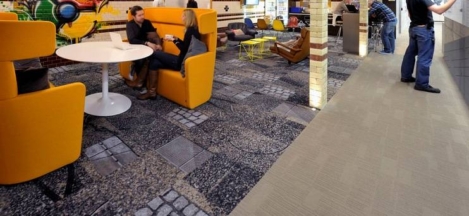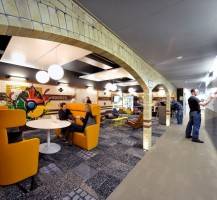March 8, 2016
Classrooms are starting to mimic the form and function of the office 0
Technology is not the only factor impacting the way education is being approached in the classrooms of today. While it’s true that many classrooms have begun to adapt to the inclusion of technology in the curriculum, there are also several “offline” options which have clearly trickled down from business design. Globally known companies such as Google and Apple have long been getting attention for the offbeat office culture they are cultivating. This trend has been fanning out into the other companies and industries as well. In-house chefs, rock climbing walls, and unconventional meeting spaces are a few of the unusual features popping up in offices all over the globe. Employers are striving to entice potential job candidates and retain their existing employees through unique and engaging environments. It may well be that the bells have already tolled for the conventional cubicle culture of the past.



































March 8, 2016
Eight in ten women believe gender discrimination still prevalent at work 0
by Sara Bean • Comment, Flexible working, Workplace
(more…)